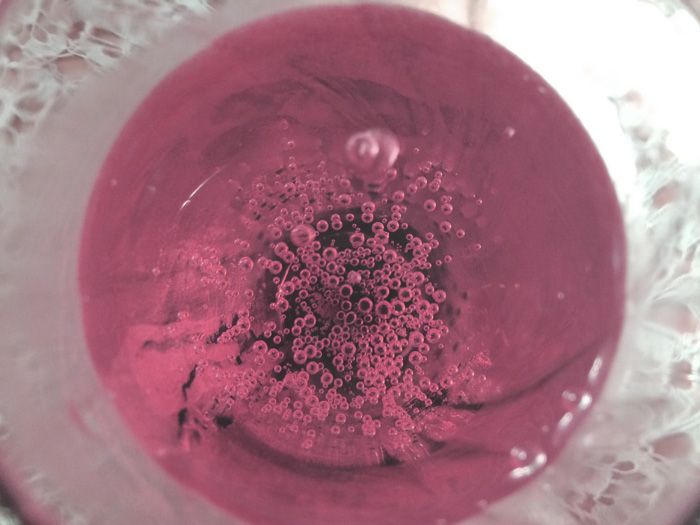A friend of a friend in high school had an alcoholic aunt who kept cases of pink champagne in her garage. Access was easy because he lived with her. If she noticed any missing, we never knew. Either she didn’t notice of she didn’t care because for a grey winter, pink champagne flowed freely. Effervescent and the color of a bunny’s nose, it didn’t seem like real alcohol. That’s why it was okay to drink at church.
One at a time, we’d get up during services and hurry down the burgundy-colored carpeted hall to a far-flung empty classroom with maps of Biblical lands handy. There’s Babylon. The friend of the friend would open a bottle. We’d pass styrofoam cups swiped from Coffee Mingle, which sweet ladies set up every Sunday for post-service socializing. He filled them. We drank quickly and returned to the sanctuary, joining our parents, our sisters and brothers, the chorus of people singing blest be the ties that bind our hearts in Christian love.
Shake hands. Lovely service. Good message! Shuffle out to Coffee Mingle and stand in line for Mother’s Cookies spread on silver trays and fruit punch for the kids. Maybe lemonade in the summer. Pink.
Our pink champagne church parties ended, but drinking continued. At a youth retreat near a ski resort, we had a wine cooler in the hot tub. It was passed to me just as the youth leader turned a corner. I was almost caught if not for quick-thinking. I plunged the bottle of Bartles & James underwater. I saved myself but made everyone else mad.
Then, there was a big shakeup in church leadership. People got angry and many left in huffs, including my mom who took my siblings and I away from friends with friends with alcoholic aunts. There would be no more church boozing but I had my own personal alcoholic at home anyway.
My dad.
He drank every night. He got up every morning and went off to work as if nothing happened. Some dads carry briefcases or tool boxes home, but my dad had brown paper bags containing 12-packs of cheap beers. He drained every can every night. On weekends, he’d offer to run errands which coincidentally took him near one of the liquor stores. I suspect he rotated the stores so the clerks he knew by name wouldn’t get the wrong idea about him.
This is how I knew he felt shame about it: He had enough sense to be aware of how he appeared to random clerks. He did not, however, care how he appeared to us.
My dad was never mean to us. He didn’t physically abuse us or slur ugly words. He would begin the evening jovial and interesting like a normal dad. With each whoosh of a new can cracked open, he crept toward vacant numb oblivion until he lurched to bed. More than once, he fell and broke furniture, glasses, and even teeth on his way to my mom’s side.
I hated his beer. I hated how he loved it more than he loved us—the perception of a child. If he loved us, he would stop when we asked but he never did. I screamed at him one Christmas Eve when I was a young teenager, begging him to go just one night without beer. Then, I turned to my mom and accused her of hating us as well because she didn’t stop him. She cried and it was a Merry Christmas for all.
Every Sunday, she was the one who prodded my siblings and I out of bed for church. My dad never went, preferring to use his Sunday morning to recover from Saturday night. Nobody asked about him at church even though they knew he was at home. His Catholicism was a handy excuse. Why would he go to a church like ours without stained glass and saints? But my mom was faithful. She was more than faithful, throwing herself into every ministry. She said yes to every opportunity to serve others, those people who had no idea what she dealt with at home.
For awhile, her daughter excused herself from the service. Maybe she had to go to the bathroom or get a drink of water? Her nose was running. She needed a strip of toilet paper to stuff in her pocket. She’d be back.
And she was with a bit of a belch and her eyes shining. Breathless, even.
Let’s stand and sing something about blessings, being, and the ties that bind.

Leave a Reply